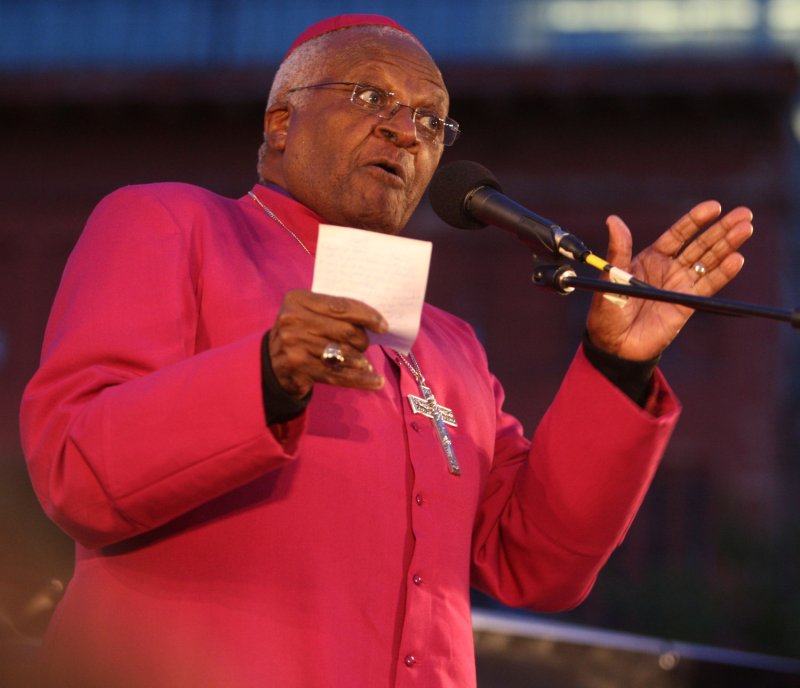JOHANNESBURG, South Africa, Oct. 7 (UPI) -- Nobel Peace Prize winner Archbishop Desmond Tutu reaffirmed his approval of physician-assisted suicide in a newspaper editorial.
"As I turn 85 Friday, with my life closer to its end than its beginning, I wish to help give people dignity in dying. Just as I have argued firmly for compassion and fairness in life, I believe that terminally ill people should be treated with the same compassion and fairness when it comes to their deaths. Dying people should have the right to choose how and when they leave Mother Earth," the South African archbishop emeritus wrote Thursday in an editorial in the Washington Post.















